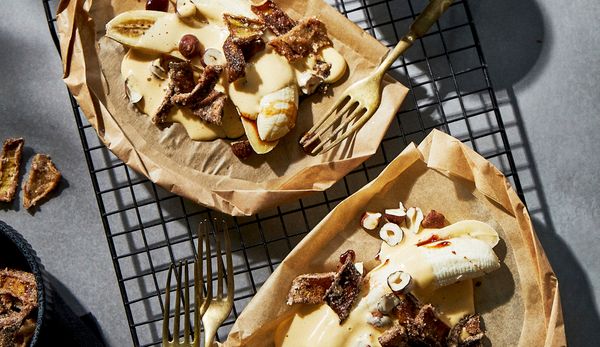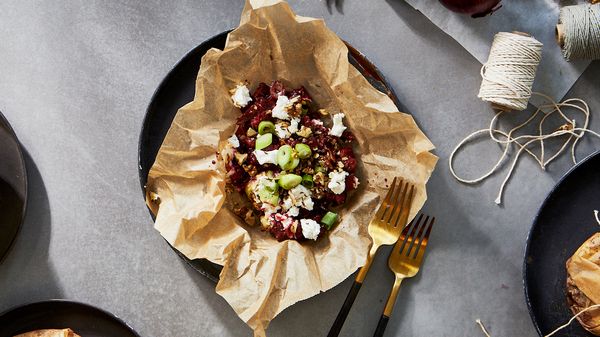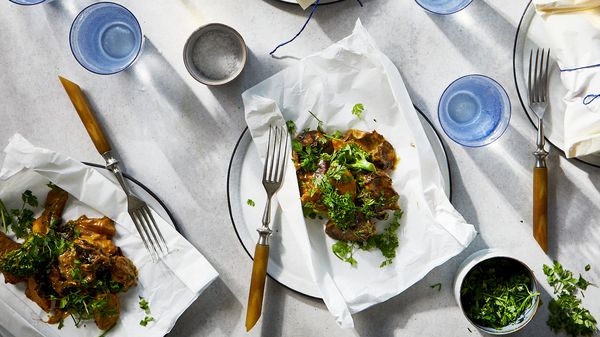
t





The Recipe at a glance
Step 1 Prepare the ripe bananas
Step 2 Wrap the bananas in the parchment paper
Step 3 Bake in the oven
Step 4 Serve
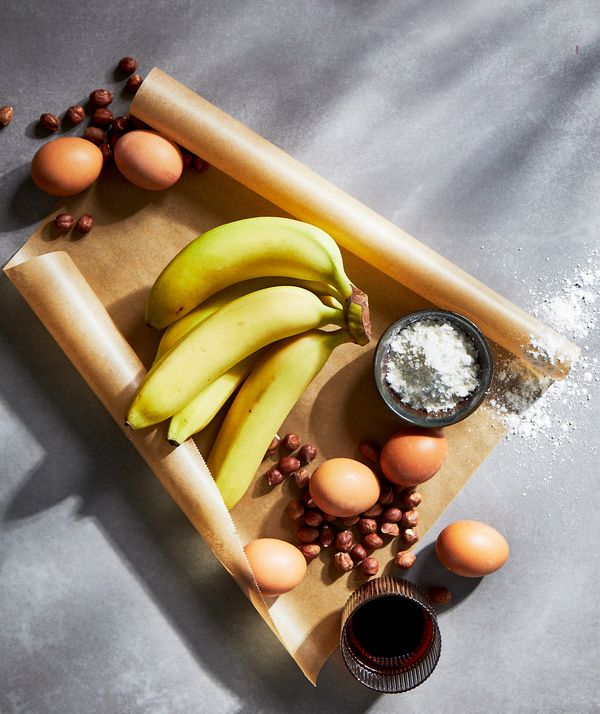
4 Servings
INGREDIENTS
For Banana in parchment paper
4 organic medium ripe bananas (do not throw away the peel, this can be used for the banana chip recipe below)
4 tbsp soft brown sugar
4 tbsp rum
50ml date syrup or maple syrup
100g hazelnuts
For the banana chips:
Banana skins
Coconut oil
Corn flour
Salt and pepper
Sugar or brown sugar
Cinnamon
For the Zabaione:
4 egg yolks
2 tbsp sugar
1 pinch of salt
1 tsp vanilla sugar
50ml Marsala or Amaretto
Allergens are marked in bold
This delicious, easy recipe uses the traditional French “en papillote” parchment paper technique to showcase the bananas natural sweetness. Click here to turn four bananas into a delightful dessert.
For Banana in parchment paper
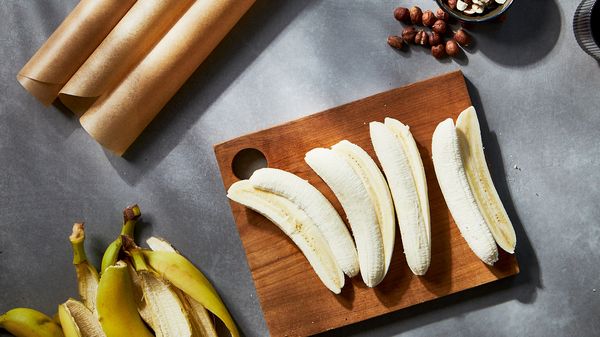
Step 1
Prepare the ripe bananas
Preheat the oven to 170 °C CircoTherm®. Wash the bananas well. Peel and halve the bananas. Keep the skins - they can be used in our banana chip recipe.
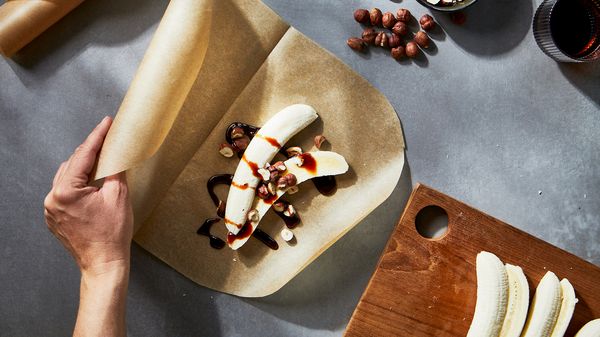
Step 2
Wrap the bananas in the parchment paper
Prepare four rectangles or squares of parchment paper. Evenly distribute the fruit, scatter with chopped nuts or crushed biscuits, and drizzle with maple syrup, rum or fruit juice ... the possibilities are endless.
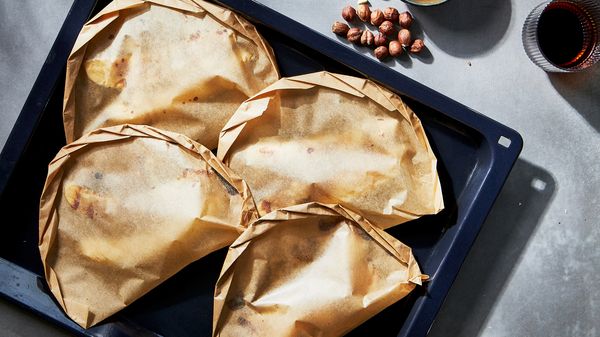
Step 3
Bake in the oven
Seal the packages so they are airtight and bake in the oven for 15 minutes.
Step 4
Serve
Enjoy on their own, or serve with Greek yogurt, peanut butter ice cream, or Zabaione. Feel free to top with mini chocolate chips - or any of your favourite toppings for that matter.
Tip: Do you have extra bananas you can't use up before the brown spots appear? If so, you can freeze bananas for later. Seal them in an airtight container and freeze for up to six months. If using frozen bananas for this recipe, make sure to defrost them in the fridge beforehand.
For the banana chips
Who says that banana skins should be thrown away? By using this easy recipe, you can turn them into a zero-waste snack or garnish that is just as delicious as the banana itself and satisfies your sweet tooth.
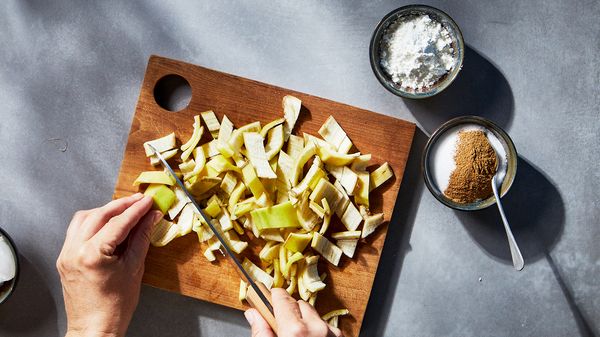
Step 1
Soak the banana skins
Cut the banana skins into pieces and allow to soften for a few minutes in warm water.
Tip: This recipe works best with medium ripe bananas.
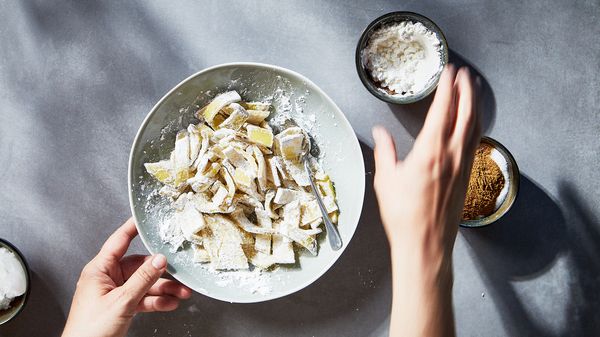
Step 2
Create a corn flour mix and coat the banana skins
Meanwhile, mix together the cornflour, salt and pepper. Drain off the water and coat the banana skins with the corn flour mixture.
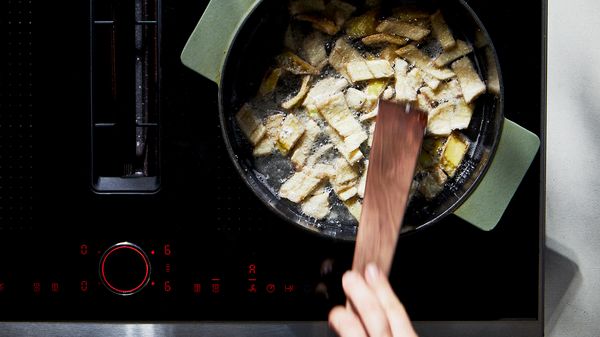
Step 3
Fry the banana skins
Heat 1–2 tbsp of coconut oil in a large pan and fry the banana skins in the oil until they are golden (oil at level 6).
Tip: You can substitute any neutral-flavoured oil you choose, but avoid strong-tasting oils like olive oil. Dust with sugar and cinnamon.
For the Zabaione
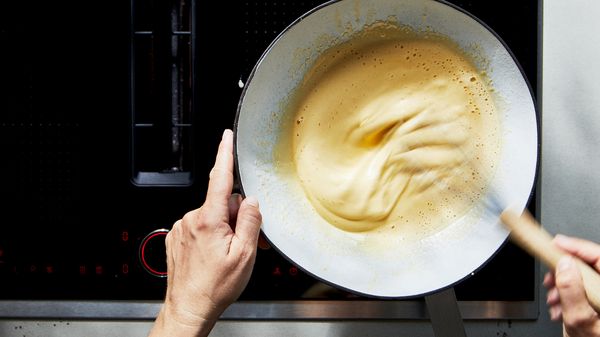
Step 1
Beat the eggs, add Marsala and mix to create the foamy texture
Beat the egg yolk with 2 tbsp of sugar, 1 tsp of vanilla sugar and a pinch of salt in a mixing bowl until the mixture is foamy.
Tip: If you can't find vanilla sugar, you can substitute it for a teaspoon of sugar and a splash of vanilla extract.
Now gradually stir in the Marsala wine or Amaretto. Finally, beat everything brisk in the mixing bowl placed on a suacepan filled with hot water until a light brown foam has formed.
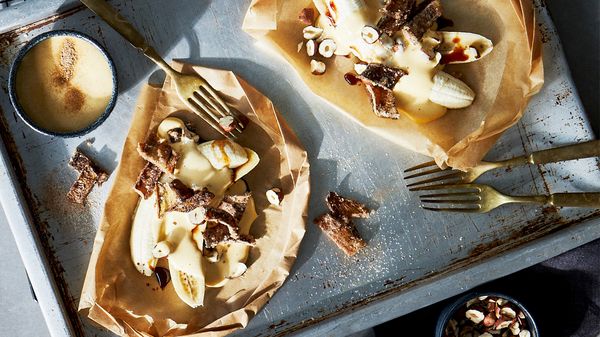
Step 2
Serve the Zabaione with the banana en papillote and banana chips
Serve the tasty banana dessert with banana chips and Zabaione. Feel free to top with mini chocolate chips - or any of your favourite toppings for that matter.
You can also enjoy the bananas on their own with Greek yogurt, peanut butter ice cream.
Tip: Do you have extra bananas you can't use up before the brown spots appear? If so, you can freeze bananas for later. Seal them in an airtight container and freeze for up to six months. If using frozen bananas for this recipe, make sure to defrost them in the fridge beforehand.
Why bake in parchment paper?
Using the French “en papillote” method is an easy way to steam food while it bakes, if brought to the table, it can provide an impressive presentation, and can reduce the clean-up!
What is Zabaione?
Zabaione is a custard that is appealingly light, thanks to being whipped into a foam before being cooked. Multiple regions across Italy claim to be the originator, with the earliest recorded recipes dating as far back as the 1400s. By the 1800s, it was incorporated into French cuisine as both a dessert and savoury sauce.
Who eats banana skins?
Turns out, people around the world enjoy cooked banana skins and have done so for thousands of years. And, as with many things, cooked banana skins originated in ancient Rome: a 2,000-year-old Roman cookbook has the earliest recorded recipe for banana skins. Over the past two millennia, fried banana skins – both sweet and savoury – have become popular in cuisines around the world, spanning India, Southeast Asia, and Latin America. It might just be one of the earliest zero-waste recipes!
